The Celebrate Blog
Education, Tips, Nutrition, and Recipes for Bariatric Surgery and Weight Loss Patients
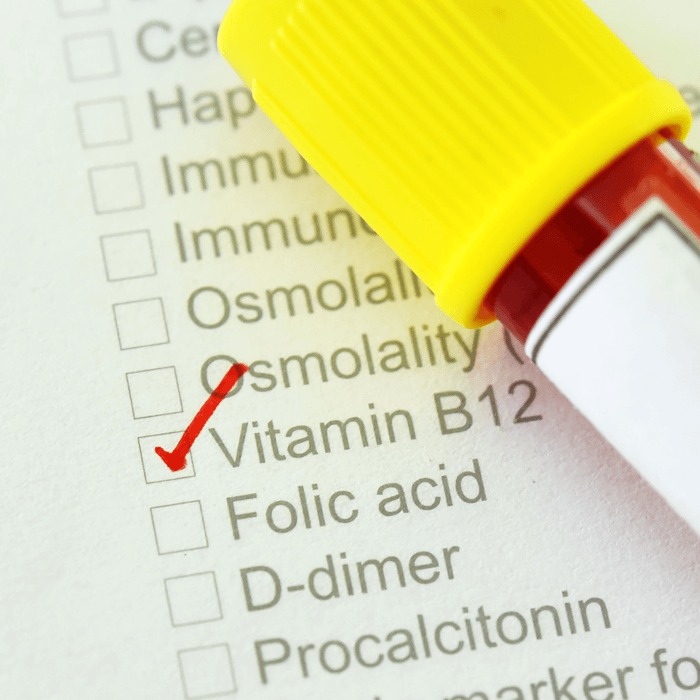
Vitamin B12 Deficiency Before & After Bariatric Surgery
July 1st, 2021
Lifestyle
Why do many bariatric patients need to watch for vitamin B12 deficiency either before or after bariatric surgery? Chances are you already know bariatric patients need higher doses of certain vitamins after surgery. Changes to the digestive system after surgery that limit calories also limit vitamins and minerals from being absorbed. What are these changes, and how common is this issue? For vitamin B-12 specifically, there are a couple factors that contribute to the importance of getting enough from your post-op vitamin regimen. What is Vitamin-B-12 and Its Role B-12 is a water-soluble vitamin naturally found in most animal products, such as meat, dairy, and eggs. It's also found in fortified foods like bread and cereal. B-12 is required for forming red blood cells, neurological health, and DNA synthesis. Deficiency can cause: Megaloblastic anemia Fatigue Neurological issues Numbness Tingling of hands and feet Impaired balance Memory loss Despite most adults getting plenty of B-12 from...

Strawberry Oatmeal Bars
June 24th, 2021
Bariatric Recipes
It's strawberry season! Whether you're growing strawberries in your yard, or just grabbing them from the store, right now they are at their sweetest and most nutritious. These strawberry oatmeal bars are low in added sugar but packed with flavor! They're a great dessert to bring to cookouts or road trips because they travel really well!...
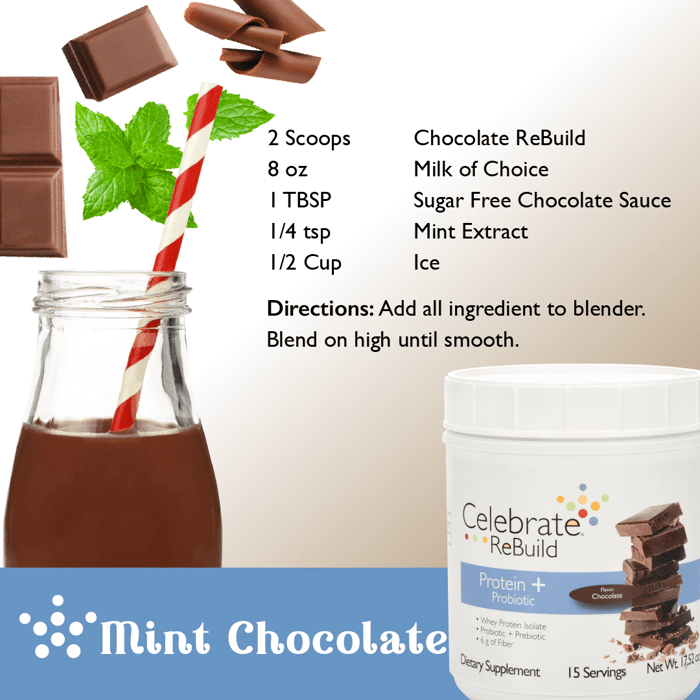
Frozen Mint Chocolate Protein Shake
June 11th, 2021
Bariatric Recipes
Mint Chocolate is a classic flavor combo that is equally satisfying and refreshing! This shake is great for a festive winter treat or a refreshing drink on a hot summer day!...
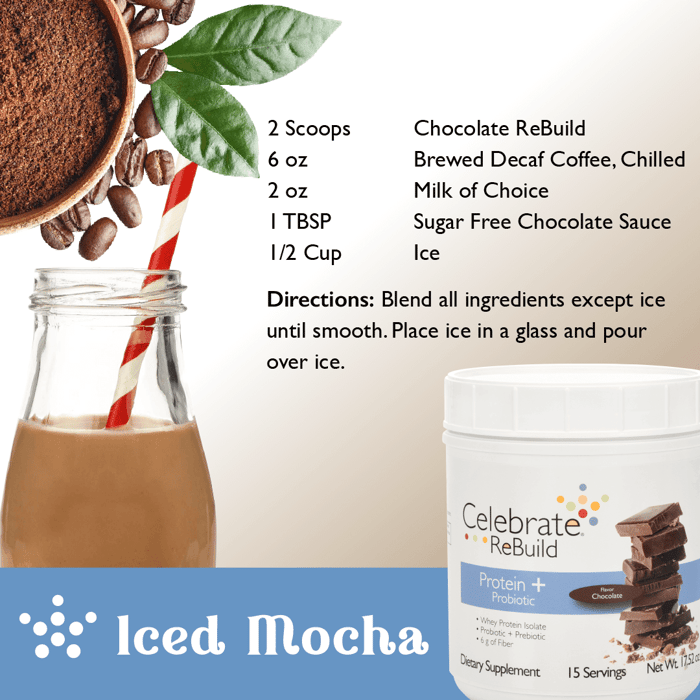
Iced Mocha Protein Shake
June 11th, 2021
Bariatric Recipes
Looking for something to replace your favorite coffee shop drink? This iced mocha will be your saving grace! Rich Chocolate flavor pairs perfectly with the intensity of the decaf coffee. And making this in the morning will save you the hassle of stopping on your morning commute!...
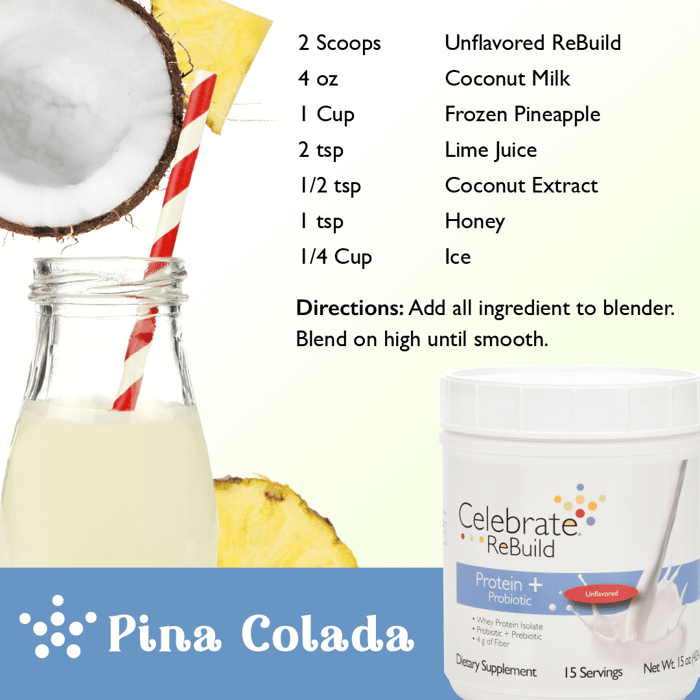
Pina Colada Protein Shake
June 11th, 2021
Bariatric Recipes
Pina Colada's scream summertime! They are the best combination of sweet coconut, tangy pineapple, and refreshing lime! This protein shake delivers on tropical flavor and is a great addition to any hot summer day....
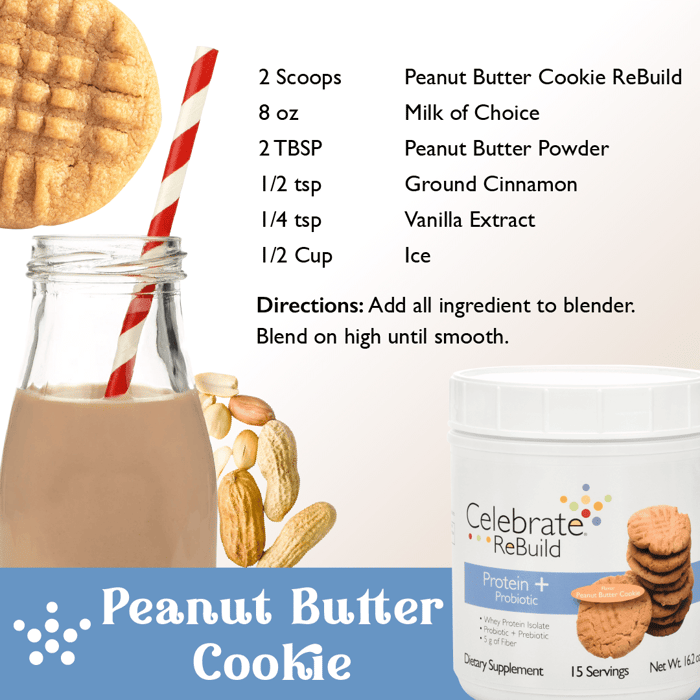
Frozen Peanut Butter Cookie Protein Shake
June 11th, 2021
Bariatric Recipes
This shake combines everything you love about peanut butter cookies and snickerdoodles into one creamy protein shake! With a little added peanut butter flavor this shake will definitely take you back to your childhood!...

Frosted Lemonade Protein Shake
June 11th, 2021
Bariatric Recipes
This bright and citrusy protein shake is very reminiscent of a drink you'd get poolside at a beach resort or even a baseball game. It is cool, refreshing, and perfect to curb any sweet craving over the hot summer months....
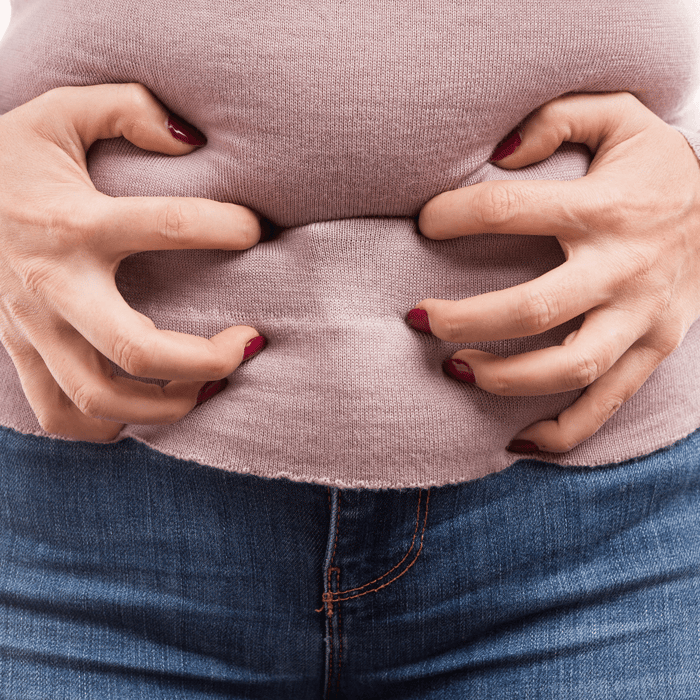
Dumping Syndrome after Bariatric Surgery
June 1st, 2021
Lifestyle
Before and after bariatric surgery, there are possible complications you should be aware of - one of which is dumping syndrome.Symptoms of Dumping SyndromeDumping syndrome can range in symptoms and is most common in patients with gastric bypass. It has been found to occur in 10-75% of gastric bypass patients, as well as in 33% of gastric sleeve patients2. The cause of dumping syndrome tends to be a self-inflicted complication. When high-sugar foods are consumed, they tend to bypass the stomach undigested, which causes a reaction in your small intestines, drawing in water. This fluid shift is what is known to cause the first stage of dumping, also known as early dumping1.Early dumping syndrome typically occurs within the first hour after food consumption. Symptoms of this stage can range from diarrhea, nausea, abdominal cramping, and high heart rate2. It is important to note you may not experience all these symptoms. Just having one of them is typically uncomfortable enough to make one avoid...

Hashbrown Egg Casserole
May 31st, 2021
Bariatric Recipes
Need a quick and easy make-ahead breakfast option for the week? This casserole will be your new best friend! It's loaded with veggies and protein and is easy to throw together on a Sunday evening, then store in the fridge for the rest of the week! Going to a brunch or potluck? This recipe is also great because it feeds a crowd!...

Apple Cinnamon Baked Oatmeal
May 24th, 2021
Bariatric Recipes
Breakfast always seems to be a challenge, especially if you're trying to get out the door ASAP! This baked oatmeal recipe can be prepped on the weekend, cut, and stored in the fridge for an easy grab-and-go breakfast. They're packed with fiber and protein to keep you full and focused until lunch!...

Thai Red Curry Chicken and Vegetables
May 24th, 2021
Bariatric Recipes
Looking to add some new and different flavor into your life? This Thai red curry Chicken and Vegetables is a great place to start....
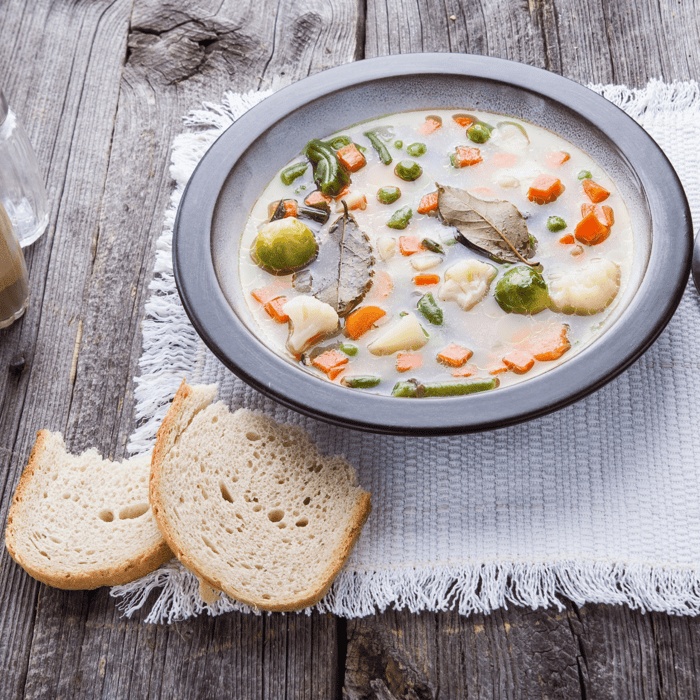
Minestrone Soup with Chicken
May 24th, 2021
Bariatric Recipes
Cold winter evenings call for warm and cozy recipes! But just because food is warm and cozy doesn't mean it has to be overly rich and heavy! This minestrone soup is packed with protein, veggies, and whole grains and is a great addition to your winter recipe rotation!...

Buffalo Cauliflower Bites
May 24th, 2021
Bariatric Recipes
Want to switch up your game day snacks? Swap out your regular buffalo chicken wings for these cauliflower bites and you won't miss the chicken or the extra calories!...

Bruschetta Chicken
May 24th, 2021
Bariatric Recipes
Need a quick and easy weeknight meal? This chicken is a perfect healthy option! A great recipe for spring and summer - the fresh bruschetta mixture pairs perfectly with bubbly cheese and chicken. Just add a side salad or veggie to complete your meal!...
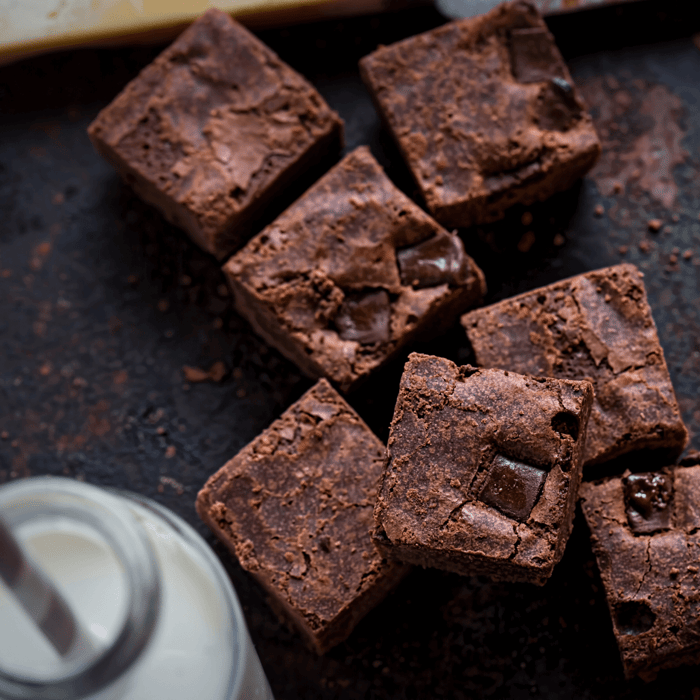
Chocolate Collagen Brownies
May 24th, 2021
Bariatric Recipes
Do you like to end your day with something sweet? Try this double chocolate protein brownie recipe for your next sweet treat! Forget regular boxed brownies; with the power of Celebrate Rebuild and Celebrate ReNew, this recipe packs 8 grams of protein and only 178 calories into each square! These brownies are perfect for adding protein to your diet and taming your sweet tooth!...

All About Fiber: Good Sources of Fiber for a High Fiber Diet
May 15th, 2021
Lifestyle
Since fiber plays a vital role in metabolism, its important to understand the types of fiber, it's characteristics, and where to get good sources of fiber for a high-fiber diet. It helps regulate blood glucose levels, may help lower risk of heart disease, aids in weight management, can suppress hunger, and promotes bowel regularity. The American Heart Association recommends daily fiber intake of 25-30 grams each day. The 2015-2020 Dietary Guidelines recommend 14 grams of fiber per every 1,000 calories consumed. There are two main types of fiber: soluble and insoluble. Types of Fiber Soluble fiber increases the presence of water in bowels and turns to gel during digestion to slow the digestive process, lowering cholesterol levels and increasing absorption of nutrients. Choose this source of fiber if you are experiencing loose stools, alternating diarrhea with constipation, or incomplete stool...

Bariatric Surgery Pre op Diet
May 1st, 2021
Lifestyle
When pursuing bariatric surgery, there are many thoughts that can circulate in your head, such as eating after surgery, exercising, and postoperative pain, but one of the biggest concerns is the dreaded pre-op diet. If you were to do a quick internet search on bariatric pre-op diets, you'd see no two are alike. One thing that cannot be stressed enough is that every surgeon and every clinic will have their own pre-op diet. It's important to follow their diet and guidelines, as this is what they have found to be best for their patients. Length of Pre-Op Diet Pre-op diets can range from a few days of a clear liquid diet, full liquids for a few weeks, participating in a program that requires several months of nutrition visits with weight checks, to even following a VLCD (800 calories a day or less). Even though each diet looks different, one of the main purposes of each diet is to reduce the size of your liver. Having an enlarged and fatty liver has been shown to complicate bariatric...
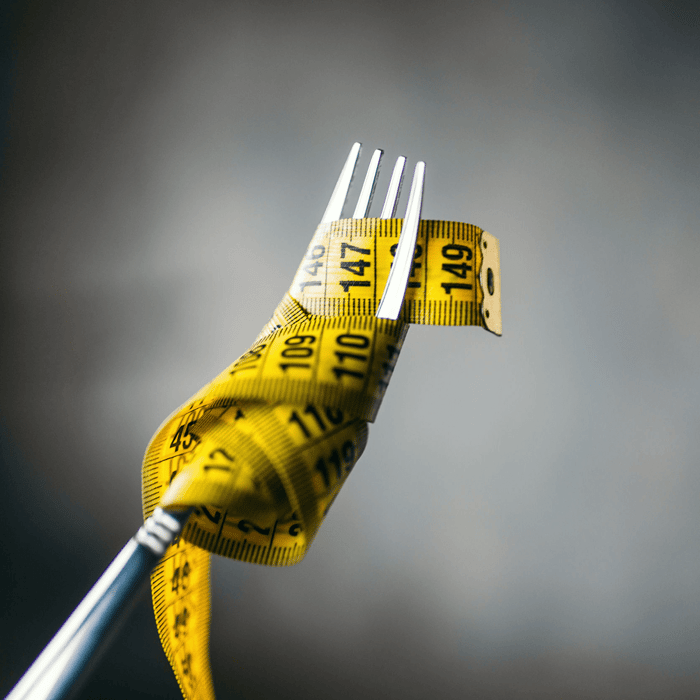
Eating Disorders After Bariatric Surgery
April 1st, 2021
Lifestyle
Bariatric surgery does not treat food addiction. This statement might be a revelation to some, but it's also the title of a book by Dr. Connie Stapleton, Ph.D. According to Dr. Stapleton, "Food addiction is often undiagnosed and can sabotage even the best efforts to lose weight and keep it off. Food addiction is a disease separate from the disease of obesity. If food addiction is present and untreated, it will overtake efforts to treat the obesity, resulting in ongoing medical comorbidities, hopelessness, and frustration."1 Like food addiction, other eating disorders can be common among bariatric patients. A study that assessed rates of eating disorders among those with a BMI less than 40 found that although women are as much as 3 times more likely than men to suffer from any eating disorder, men and women were equally likely to experience binge eating.2 Binge Eating Disorder What exactly is binge eating disorder? Beyond eating large quantities of food in a short period of time, clinical binge...
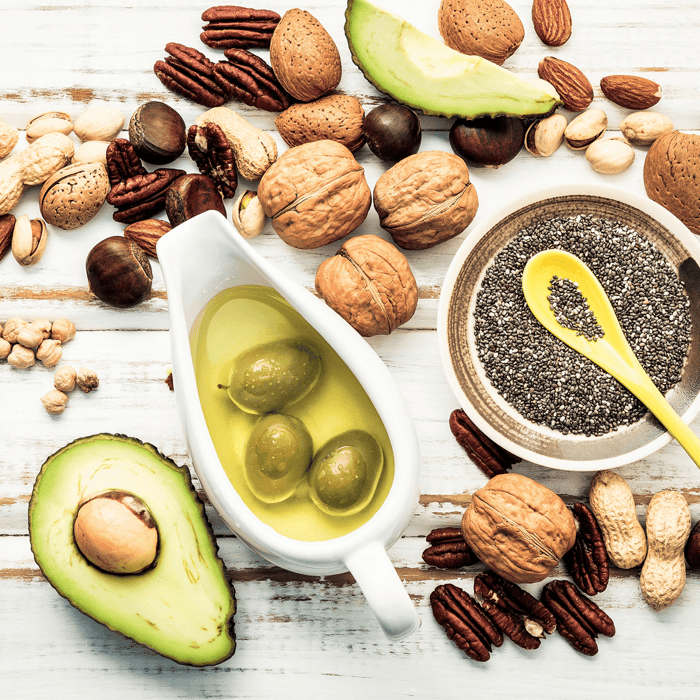
Meeting Protein Goals with Vegetarian Diets
March 15th, 2021
Lifestyle
Protein, protein, protein. Whether you are pre-op, post-op, or somewhere in between, the protein conversation is never-ending. Your protein intake can be met with a variety of foods, but what most commonly comes to mind are animal sources: chicken, beef, pork, fish, etc. However, you can meet your protein goals through a vegetarian diet, if you so choose! A vegetarian diet is one that does not include chicken, fish, beef, or pork but does include other animal byproducts such as cheese and eggs. A vegan diet consists of no animal proteins or animal byproducts. Protein Basics Protein is made up of 20 amino acids, including the 9 essential amino acids. Some of these amino acids are found in lower quantities in vegetarian sources. However, all needs can be met through a diverse vegetarian diet. If you follow a vegetarian diet and only eat beans, you will not get all your essential amino acids. Luckily, most of us don't eat only one food, so this shouldn't be a problem!1 Before we dive into the...

Bariatric Vitamins vs Over The Counter Vitamins
March 1st, 2021
Lifestyle
Over the Counter (OTC) multivitamin mineral supplements became available in the early 1940s, and people have been taking them ever since. They account for almost 16.67% of all purchases of dietary supplements and 40% of all sales of vitamin and mineral supplements. In the United States in 2018, an estimated $124.8 billion was reported from the sale of dietary supplements. This amount included $42.6 billion for all vitamin and mineral-containing supplements, of which $8.5 billion was spent on multivitamins alone. This article will help you better compare bariatric vitamins vs regular vitamins.Multivitamin RegulationOur bodies need vitamins and minerals daily to function properly, and the absence of these can lead to severe health issues and even death. However, there is no standard or regulatory definition for a multivitamin supplement, and there are no standards for specific nutrients it must contain or at what levels. Therefore, the term can refer to products of widely varied compositions...

Hair Loss After Weight Loss Surgery
February 15th, 2021
Lifestyle
Hair loss is one of the most common side effects patients experience after bariatric surgery and is usually experienced between 3-6 months following surgery. One study that looked at post-laparoscopic sleeve gastrectomy patients found that 56% of patients experienced hair loss, 46% female and 10% male.1 There are two stages of hair loss after surgery; one is fairly common, while the other may require assessment for nutritional deficiencies. Hair Shedding This most commonly happens in the early post-operative stage. You may notice hair shedding more when you brush your hair, when you shower, or even when simply running your fingers through your hair. This is normal and is caused by telogen effluvium, a disruption in the normal hair cycle triggered by stress and hormone changes your body experiences from rapid weight loss.2 Hair shedding is less commonly associated with protein malnutrition or vitamin/mineral deficiencies, although one study found that patients with higher zinc and iron...

Post Op Constipation After Bariatric Surgery
February 1st, 2021
Lifestyle
The clinical diagnosis of constipation is when a person has difficult bowel movements or passes less than three bowel movements a week.1 As we discuss constipation further, it is important to remember this: prior to bariatric surgery, you might have had a bowel movement every day, but changes are occurring, and remembering the clinical diagnosis can be helpful to prevent stress about this common side effect. Post Op constipation is a common side effect patients deal with after bariatric surgery. Post-Op constipation can occur in patients who have had any of the four major bariatric surgeries: sleeve gastrectomy, gastric banding, Roux-en-Y gastric bypass, and duodenal switch. The occurrence after bariatric procedures ranges between 7 and 39%. What Causes Constipation Constipation can occur as a result of a number of causes. After surgery, patients consume little solid food and small amounts of fluid; both can cause constipation. Additionally, iron supplementation is needed after surgery,...
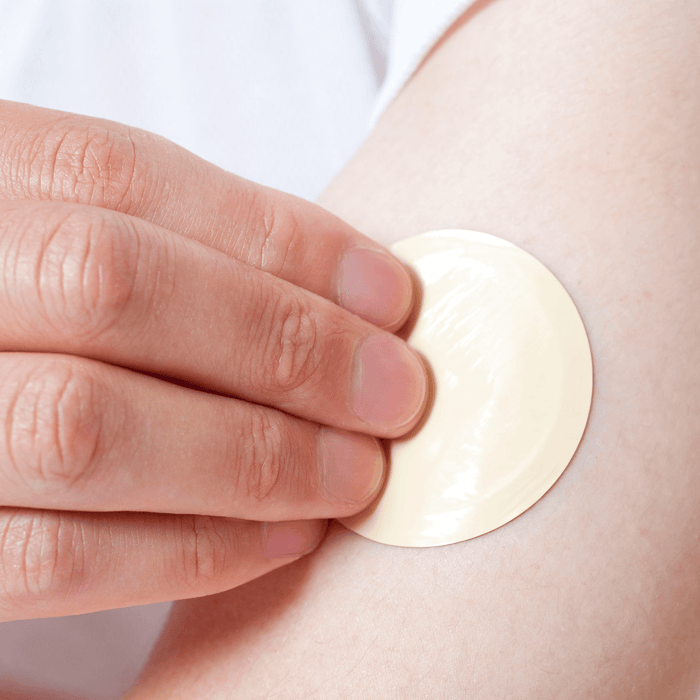
Vitamin Patch Efficacy for Bariatric Patients
January 15th, 2021
Lifestyle
Balancing cost, convenience, and quality with a bariatric vitamin regimen is one tricky feat. It seems that to get the most of one, we have to sacrifice another. Appealing to this concern, vitamin patches entered the market with a promise to deliver, but are they really effective? Effectiveness of Patches The bottom line is there is not enough research yet to prove they work. In fact, the limited research available has actually shown that patches lead to more vitamin deficiency. In a small study, the vitamin patch group had more deficiencies than the oral supplement group.1 Despite the small study size, the results raise some concern, with 82.35% in the patch group having at least 1 deficiency compared to 40.74% in the pill group.1 Vitamin D deficiency was seen in 81% of patients in patch group versus 36% in the pill group. Lower serum concentrations of vitamin D, B1, and B12 were seen in the patch group.1 To better understand why the results favor oral supplements, let's take a quick refresher...

Fat-Soluble Vitamins After Bariatric Surgery
January 1st, 2021
Lifestyle
After bariatric surgery, we need vitamins to meet the specific needs of our new GI tracts. This is why it's recommended to take bariatric specific vitamins instead of over-the-counter vitamins. Did you know that not all vitamins are absorbed the same in the body? There are two types of vitamins: water-soluble and fat-soluble. We are going to look specifically at fat-soluble vitamins, why deficiencies occur after bariatric surgery, and what you can do to prevent deficiencies. What are fat-soluble vitamins? Where are they absorbed? Fat-soluble vitamins are vitamins A, D, E, and K. These vitamins are absorbed along with dietary fat and are stored in the body's fat tissues, as opposed to water-soluble vitamins that are absorbed in water, any excess is excreted through urine. Fat-soluble vitamins are absorbed in the duodenum - the first part of the small intestine. To note, the duodenum is also the part of the small intestine that is bypassed in the Roux-en-Y Gastric Bypass (RNYGB) and the...

Pregnancy After Bariatric Surgery
December 15th, 2020
Lifestyle
Fertility After WLS While obesity is a well-known contributor to female infertility, studies have also shown that weight loss "can restore ovulatory cycles, allowing for spontaneous pregnancy" in obese patients with PCOS.1 Bariatric surgery has been proven to improve menstrual regulation and fertility2, but there are nutritional complications one should consider before becoming pregnant after bariatric surgery. We will dive into the different potential complications and how you can navigate through pregnancy safely after bariatric surgery. Potential Complications Malnutrition and vitamin/mineral deficiencies are high-risk nutritional complications that can impact fetal growth. These complications are due to rapid weight loss and inability to eat large portions of food (adequate nutrients) in the first year after bariatric surgery. It's generally recommended to avoid pregnancy for at least 12-24 months after bariatric surgery to avoid these risks.3 Optimal care for women undergoing bariatric...

Alcohol Consumption After Bariatric Surgery
December 1st, 2020
Lifestyle
Before surgery, you may have enjoyed a drink or two after a long day at work or during an evening out with friends. Unfortunately, these habits will have to change after your surgery. So what do you need to know about alcohol consumption after bariatric surgery? There are a few reasons why this change is necessary. The first we will look at is the simplest. If you do drink, you know to never drink on an empty stomach. At the same time, one of the biggest rules after bariatric surgery is that you cannot eat while drinking. This can cause alcohol to be absorbed at an even faster rate. If there is nothing in the stomach to absorb the alcohol, you will feel the effects faster. This post-bariatric surgery guide is here to inform you of the increased effects of alcohol. How Surgery Affects Alcohol Absorption Let's look at the changes to anatomy that occur during surgery and how this affects alcohol sensitivity and absorption. When alcohol enters the stomach of someone with normal gut anatomy,...
Benefits of Food Tracking for Bariatric Patients
November 15th, 2020
Lifestyle
When trying to lose weight, how many times have you been told to track your food from your registered dietitian, health coach, primary care, bariatric surgeon, etc.? Chances are you have heard this repeated, but who has actually taken the time to do it? Few people enjoy food tracking, but it has been proven to be beneficial in short and long-term weight loss when paired with visits with health professionals. How to Track Your Food Tracking your food can be accomplished several ways. You can download a food tracking application on your phone, get a notebook and simply write down the details of your meals, and you can even print a food diary from several different sources. No matter the way you choose to track your food, it will help you be more mindful with your food choices, more aware of the calories in your foods, and even help you detect food allergies/intolerances. Benefits of Food Tracking A study performed in West Virginia encouraged patients to maintain food and exercise logs by pen...
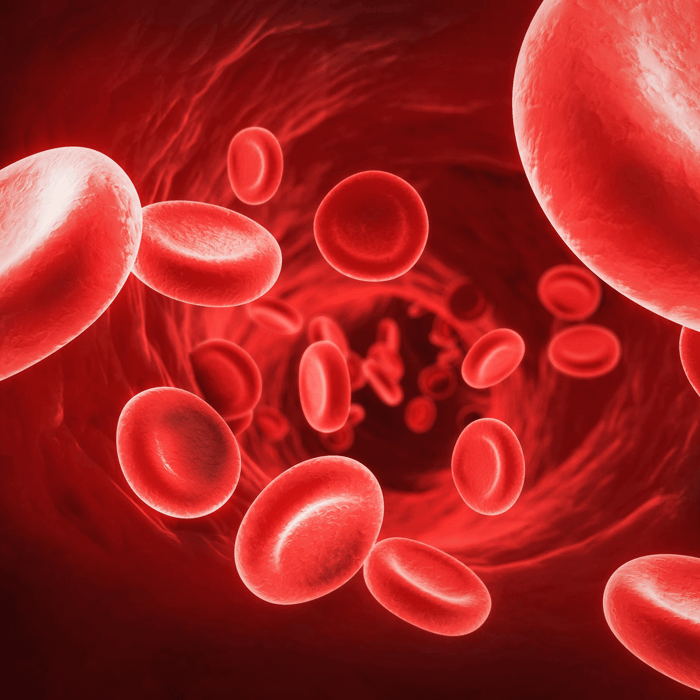
Let's Talk About Iron Deficiency After Bariatric Surgery
October 14th, 2020
Lifestyle
You might workout at the gym and pump iron a few times a week, but your body pumps iron continuously through the bloodstream every day. Iron is needed to make hemoglobin, a part of red blood cells that acts like an Uber driver for carbon dioxide and oxygen. It locates oxygen in the lungs, drives it through the bloodstream, and releases it off in tissues including the skin and muscles. It then picks up the carbon dioxide and drives it back to the lungs where it's exhaled.What is iron deficiency?Iron deficiency after bariatric surgery occurs when the body doesn't absorb enough iron needed to perform daily functions. You might be deficient and not even know because symptoms appear only when iron deficiency has progressed to iron deficiency anemia, a condition in which the body's iron stores are low enough that a sufficient amount of normal red blood cells cannot be made to carry oxygen efficiently throughout the body. Iron deficiency is one of the most common nutritional...

Weight Regain after Bariatric Surgery
October 13th, 2020
Lifestyle
What is it? Weight regain is known as one of the most impacting long-term complications post bariatric surgery, though there is currently no clear definition to what exactly weight regain means. A recent poll from the International Bariatric Club, a group of experts in the field of bariatrics, determined that the two most favorable definitions of weight regain are regaining weight to achieve a BMI above 35", and/or "an increase in weight of above 10 kg (22 lbs.) from the patients lowest post-operative weight", respectively. No matter your definition, if you are a post bariatric surgery patient who is experiencing weight regain there is no denying it is frustrating, and can sometimes lead to feelings of defeat, anger, or even depression. Why does it happen? It is nearly impossible to pinpoint exactly what causes weight regain. Mechanisms behind weight regain stem from lifestyle, mental health, hormonal changes, surgical factors, or combinations of any of the previous mentioned.2 Behavioral...
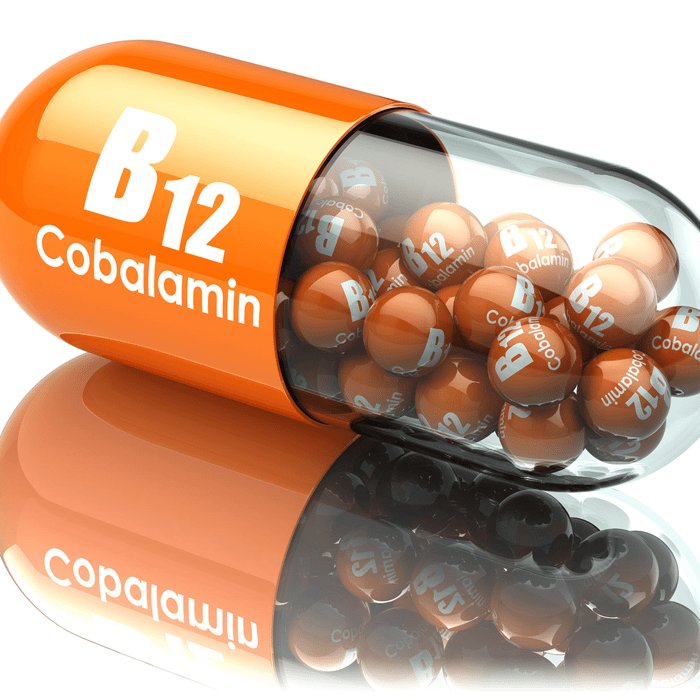
Vitamin B12 Absorption Following Bariatric Surgery
February 5th, 2020
Lifestyle
As Celebrate does with all our bariatric vitamins, we put much thought and consideration into our formulation and are never done looking at ways to improve our products for bariatric patients. We defer to the research and the vast knowledge we gain from working with many of the top-notch bariatric programs across the nation. Some basic information on vitamin B-12 deficiency is outlined below: Pre-op vitamin B12 deficiencies occur in 5-29% of bariatric patients. Post-op vitamin B12 deficiencies occur in 37-70% of bariatric patients. Lab tests for vitamin B12 are not the most reliable. More reliable tests (i.e. homocysteine and methylmalonic acid) are often expensive and not routinely performed by most bariatric programs due to the cost of these tests. Deficiencies of vitamin B12 may not appear for 5+ years after bariatric surgery. Most bariatric patients prefer to simplify their vitamin routine so increasing the vitamin B12 dosage helps reduce the number of supplements most patients have...
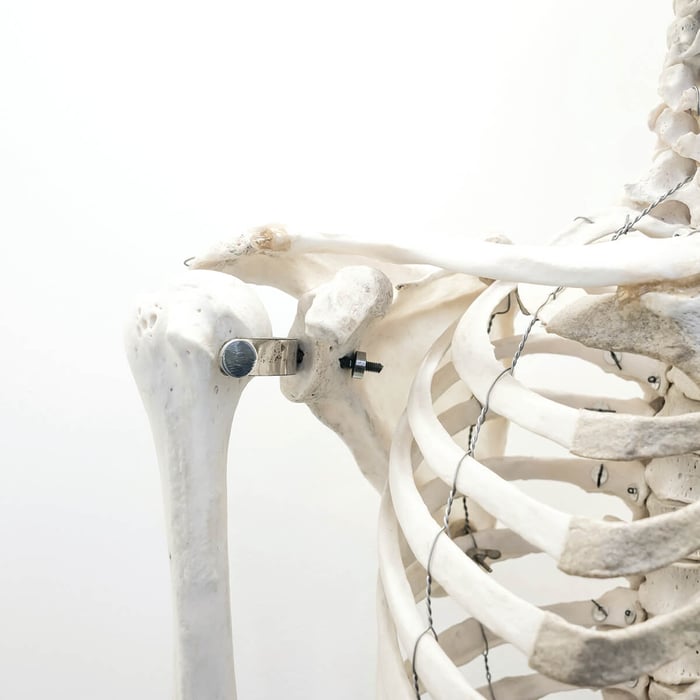
Calcium Deficiency for Bariatric Surgery Patients
February 1st, 2020
Lifestyle
Patients who choose to have bariatric surgery have an increased risk of developing certain vitamin and mineral deficiencies, including calcium. Calcium's Role Calcium is an essential element for human life. It is the most abundant mineral in the human body and 99% of your body's calcium is found in your teeth and bones. The remaining 1% of calcium in the body is found in blood, nerve cells, and body tissue. In addition to the commonly known role calcium plays in healthy teeth and bones, it is also essential for growth, maintenance, and reproduction. It also plays a role in blood clotting, muscle contraction, hormone secretion, and the expansion and contraction of your blood vessels. Not getting enough calcium can contribute to poor bone health and other long-term consequences. It is important to note that the body tightly regulates serum calcium. Serum levels of calcium do not change in regards to dietary intake of calcium. This means the body uses bone as a reservoir for and as a source of...

Food Intolerances - Which Foods to Avoid After Gastric Sleeve or Gastric Bypass Bariatric Surgery
January 30th, 2020
Lifestyle
Many patients report food intolerances, especially during the period of time immediately following surgery once you're allowed to progress to normal eating. Some foods may not sit well and cause an uncomfortable feeling or even discomfort for a while. What should you expect if you're a pre-op or early post-op patient? What are considered normal food intolerances and are there other causes of food intolerances?Common Food IntolerancesA few foods that are commonly not tolerated well after bariatric surgery may include, but are not limited to, pasta, breads, rice, beef, chicken, pork, eggs, stringy vegetables, fruit with membranes, foods with seeds, and cow's milk (or other dairy foods with lactose). However, with this in mind, every patient is different with what they can and cannot tolerate. Also remember that each day may be different. One day you may be able to tolerate a food that you may not be able to tolerate a few days later. Another thing to keep in mind is that some...
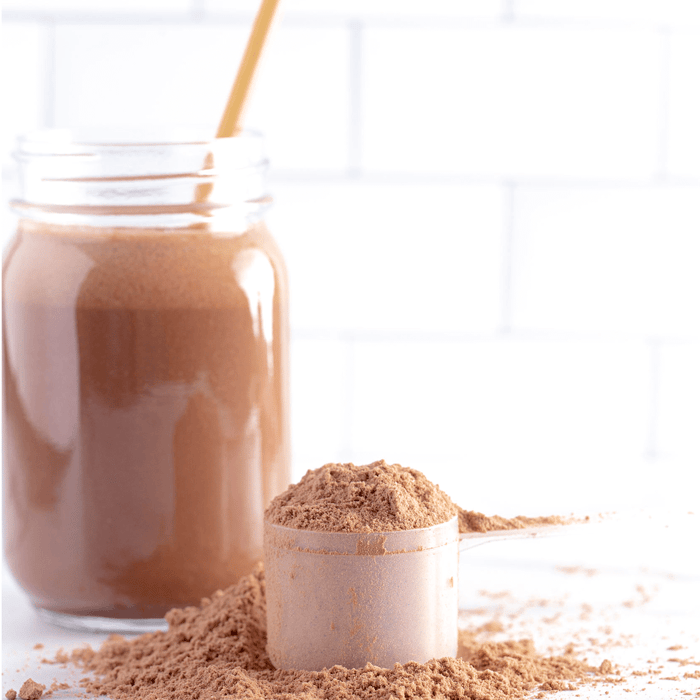
Meal Replacements vs Protein Supplements
August 8th, 2019
Lifestyle
Many bariatric (surgical and non-surgical) patients choose protein supplements to achieve their daily recommended protein intake, but what is the difference between a meal replacement and a protein supplement? Is one better than the other, especially for bariatric surgery patients? What is a Meal Replacement? The term "meal replacement" is not defined by the Food and Drug Administration (FDA), but generally refers to a calorie-controlled, pre-packaged product in the form of a bar or a beverage (ready-to-drink or powder) that is used to replace a meal. Meal replacements usually provide around 200-250 calories per serving (although some may be as high as 400 calories per serving) and are fortified with more than 20 vitamins and minerals (at a "good" or "excellent source" level), healthy carbs (including fiber), and healthy fats. The inclusion of fiber, in particular, is thought to decrease the incidence of low blood sugar, low blood pressure, constipation and/or diarrhea. The inclusion of...

Physical Activity & Exercise After Bariatric Surgery
April 30th, 2019
Lifestyle
Physical Activity This article does not intend to initiate the debate of exercise versus physical activity terminology. Some individuals call it exercise, but for the purpose of this article we use the terms physical activity and fitness. It is best to not stress over what we are calling it and rather stress the importance of actually doing it, being successful at it, and enjoying it. The goal is to be more active and increase your fitness level. Maybe you have never participated in physical activity before? Maybe you have physical limitations that make certain types of physical activity difficult, if not impossible. There are several benefits related to being physical active and increasing your fitness level, including, but not limited to, stress relief, better sleep, increased overall energy levels, decreased risk of chronic disease, better overall mood, etc. While all of these changes would be considered beneficial, how does someone get past the feeling of not wanting to be physically...
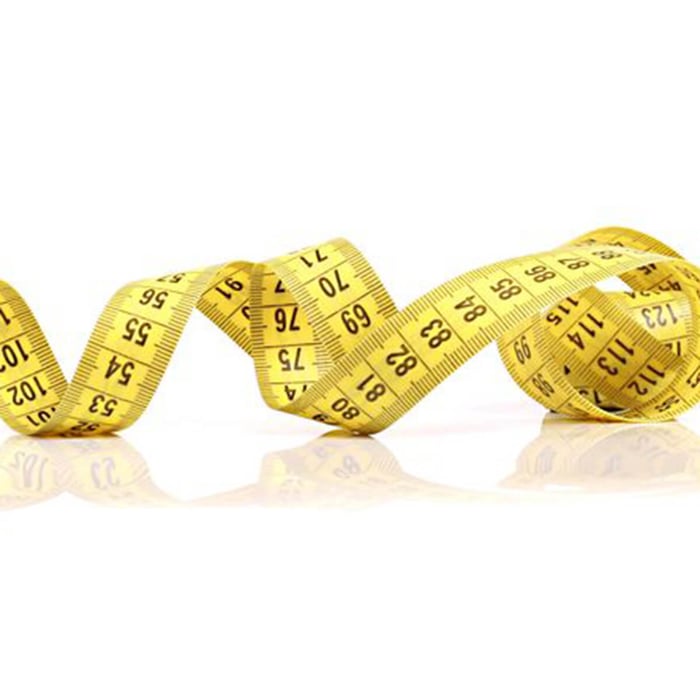
What are Body Mass Index (BMI), Inches & Weight Measurements for Bariatric Surgery Patients?
April 12th, 2019
Lifestyle
What is Important? Is it Just a Bunch of Numbers? As a bariatric surgery patient, you are constantly surrounded by numbers, but what do all of these numbers mean and which ones are important? Below we will review a few common metrics used in bariatric surgery, such as Body Mass Index (BMI), inches, and weight, and discuss their importance. BMI - What is it? What Does it Mean? Body Mass Index (BMI) is a number calculated from an individual's height and weight. BMI provides a reliable indicator of body fatness for most people and is used to screen for weight categories that may lead to health problems and/or conditions. You can calculate your BMI multiple ways. You can use a BMI calculator online like one from the National Institute of Health's website (1). The National Institute of Health also has a Body Mass Index Table you can use to determine you BMI as well (2). To use a BMI table, just find the appropriate height (listed in inches [in]) in the left-hand column labeled height. Move...

Diet Progression After Bariatric Surgery
April 11th, 2019
Lifestyle
Diet Progression After Bariatric Surgery Many patients have heard that there's a diet progression after bariatric surgery (and possibly before). A lot of patients report being nervous about the liquid diet. But why is there a diet progression? Why do you have to follow different diets? Let's take a look at a brief description of the common diet progressions and why they're recommended. This is the one time we readily use the word "diet" as a diet is a short-term change to your eating pattern. The "diet" that is being recommended long-term; we typically prefer to call a healthy eating plan instead of using the word diet. Examples of Diet Progressions The diet progression allows patients to move through different phases, eventually eating solid foods again. The amount of time in each stage may vary according to each surgeon or dietitian's recommendation as well as each individual patient. Be sure to follow the exact recommendations of your program. Pre-Operative Some surgeons have their...

Crockpot Pork Tacos
August 7th, 2018
Bariatric Recipes
These tasty tacos are healthy and full of flavor, with just a little kick! It's back to school and everyone could use a little more time, so this meal is a quick and easy solution that's oh-so-delicious!...
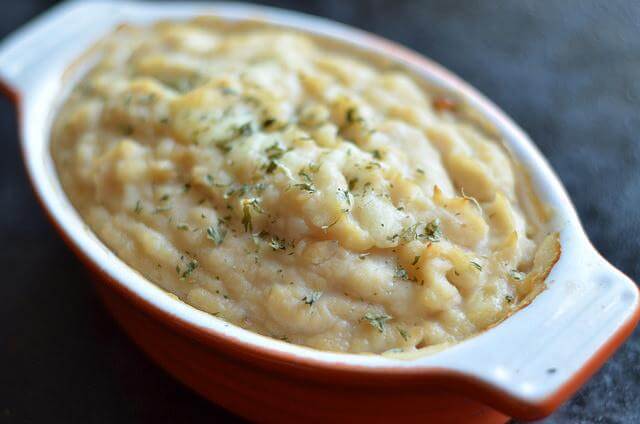
Parmesan & Roasted Fauxtatoes
August 7th, 2018
Bariatric Recipes
Garlic Parmesan Mashed Fauxtatoes: Rich, creamy, and flavorful, but this small-batch recipe has no potatoes! You'll find tons of flavor and nutrients in this recipe that's just the right size for your post-op holiday needs! Serving...

Power Chicken Salad
August 7th, 2018
Bariatric Recipes
Power up for the next day. This is not your traditional chicken salad. Add a little Dijon mustard, edamame, and pepitas and you have yourself a Power Chicken Salad! Serve it on high-fiber crackers or try it on jicama! You'll be ready to go with this quick and easy recipe....

Crockpot Curry Chicken
August 7th, 2018
Bariatric Recipes
In a "curry?" This weeknight meal is big on flavor, but easy to make and saves time! Pull out your crockpot and get ready to fire up this creative twist on a traditional Indian dish that's low in calories and high in protein. Using cauliflower rice and coconut milk as a healthy substitution make this curry-licious dish one you and your family will love!...

Can You Have Bariatric Multivitamins with Calcium?
April 25th, 2018
Lifestyle
With so many different types of multivitamins out there, it is hard to know what is the best product for you as a bariatric surgery patient and what your body can actually absorb. Unfortunately, not all companies (including many over-the-counter brands and some bariatric vitamin brands) follow the rules of how the body absorbs various nutrients. The multivitamins some of these companies create might include nutrients that cannot be absorbed when taken together or they might include nutrients that need to be provided within a certain ratio for optimal health and in order to prevent deficiencies. Specifically, one of the questions I get asked quite a bit is, "Should my multivitamin contain calcium?" Of course, the answer to this question is not a simple "yes" or "no" and a few questions must be asked before an answer can be provided.Does the Multivitamin Contain Iron?The first question that must be asked is, "does the multivitamin also contain iron?"...

Cabbage Rolls
April 24th, 2018
Bariatric Recipes
Cabbage rolls are down-home comfort food. This smoky version eliminates most of the carbs, leaving you with a soothing winter meal that packs a powerful protein punch! Yields...

Cauliflower Crust Pot Pie
April 24th, 2018
Bariatric Recipes
Wondering what to do with that last bit of leftover turkey meat? Make it into this low-carb pot pie that's perfect to freeze and reheat on a cold winter's night! Serving...

Cheeseburger Meatballs
April 24th, 2018
Bariatric Recipes
Do you miss cheeseburgers? If so, this is the recipe for you! These small meatballs pack a big protein-punch with the flavors of bacon, cheese, and even your favorite toppings!...
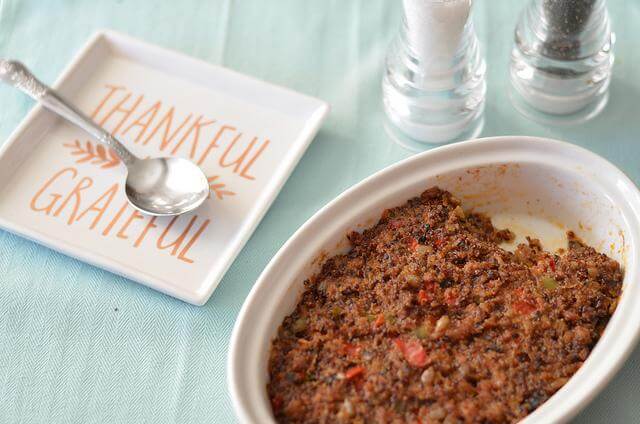
Super Food Stuffing
April 24th, 2018
Bariatric Recipes
Thanksgiving just isn't Thanksgiving without stuffing! This recipe combines the classic flavors of sausage stuffing with the protein power of ancient grains to pack a flavorful and nutritious punch! Serving :...

Zoodle Ravioli
April 24th, 2018
Bariatric Recipes
Zoodle ravioli? Yes you can! In this recipe, we fill zucchini noodles with a creamy ricotta mixture and top it with a savory pumpkin sauce for a healthy comfort dish that screams Fall!...

Sweet Potato Toast with Egg
April 24th, 2018
Bariatric Recipes
Eggs they're not just for breakfast anymore! This recipe takes advantage of the latest nutritional trend sweet potato toast. Sweet potatoes are rich in nutrients, including beta-carotene, and are a healthy source of carbs for fueling an active lifestyle. Here we've topped it with a deliciously nutritious mix of spinach, tomatoes, and onions with a poached egg for just a little bit of indulgence. Serve this for an elegant breakfast-for-dinner....

Spicy Vegetarian Chili
April 24th, 2018
Bariatric Recipes
Do you enjoy vegetarian meals but worry about getting enough protein? This spicy chili is a hearty meal packed with flavor and protein! Give it a try for a delicious Meatless Monday meal or any day!...

Turkey Burritos
April 24th, 2018
Bariatric Recipes
Burritos are a family meal favorite! These smoky burritos lighten the fat and carb loads without sacrificing flavor. Make a tray of these for the next big game and rest assured you're fueling you and your family right! Serving...

Meatball Ramekins
April 24th, 2018
Bariatric Recipes
Who doesn't want dinner to be quick and easy, especially when we have so many other things going on at night? Not only is this recipe quick and easy, it's also creamy, cheesy, and savory! Oh, did we forget to mention that it's also healthy?...
